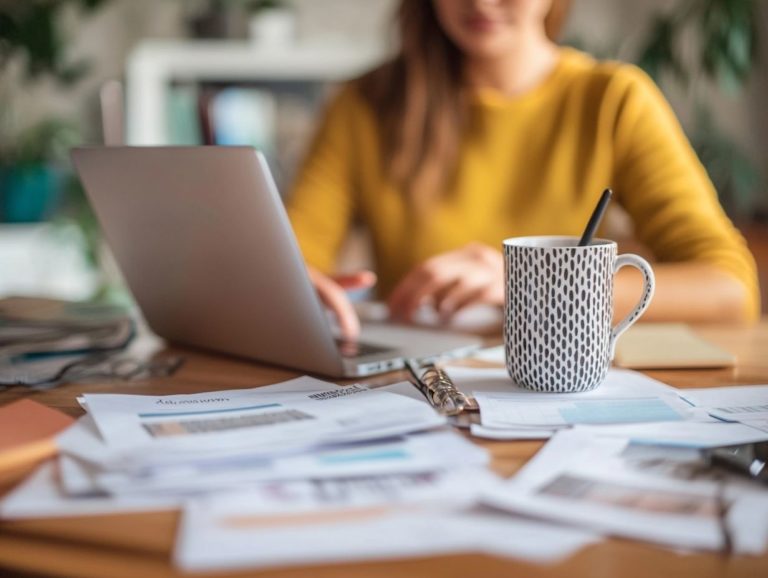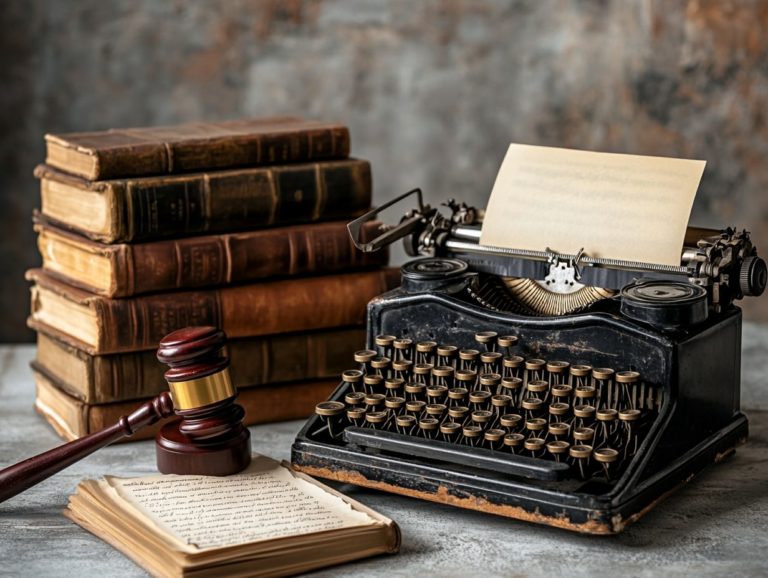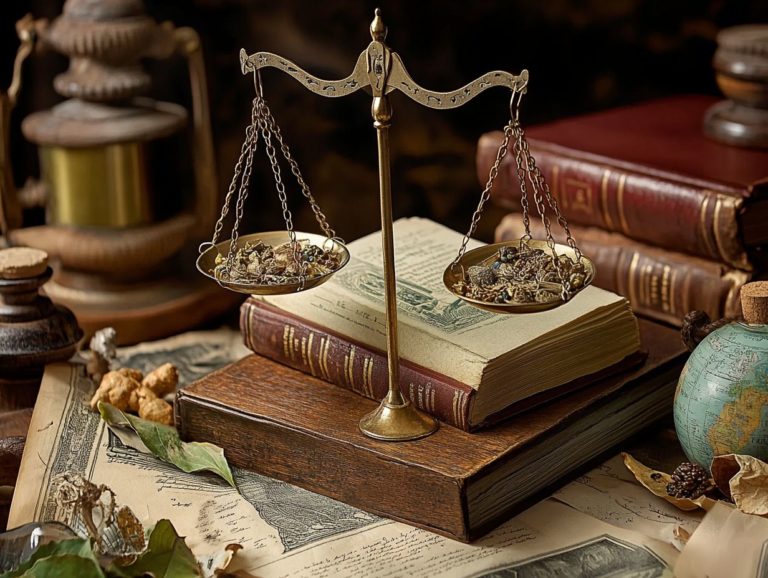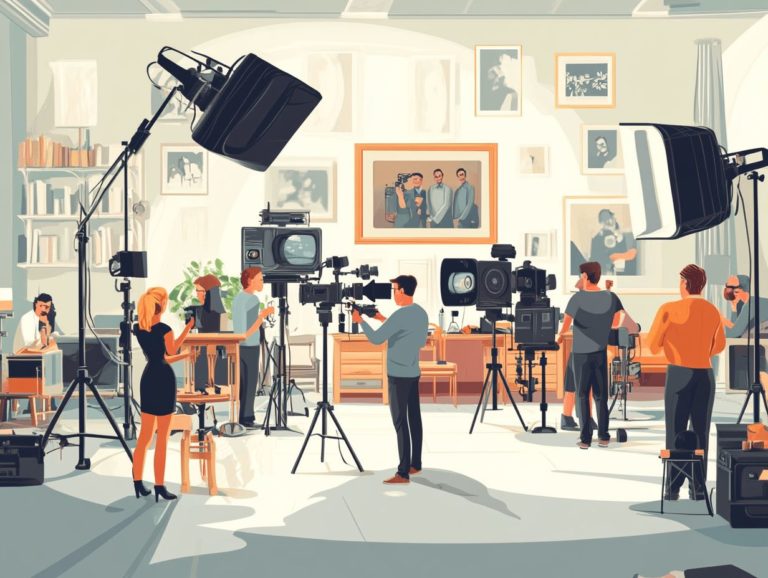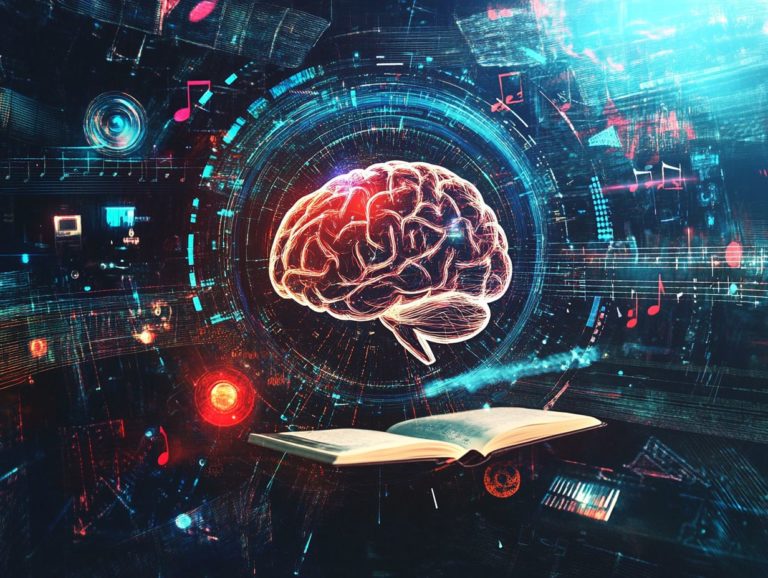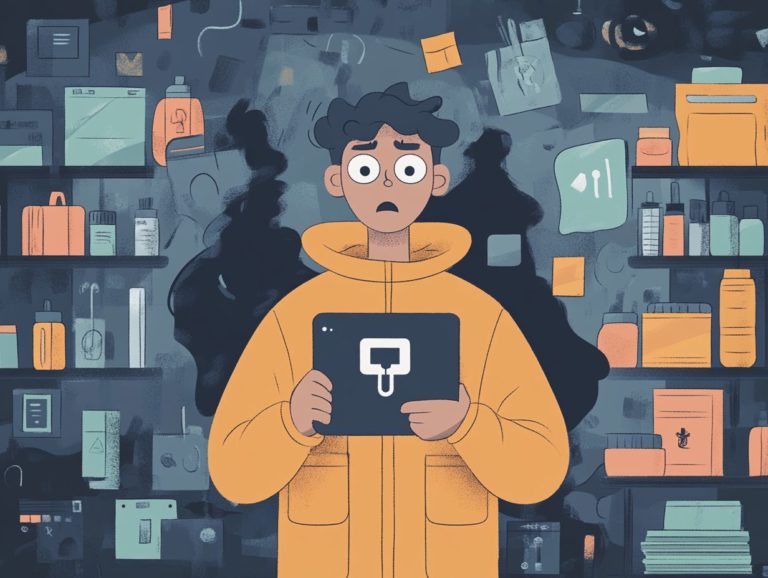Copyright Infringement: What You Need to Know
Copyright infringement poses a significant challenge in today s digital landscape, impacting creators, businesses, and consumers alike.
By understanding its definition and the two types direct and indirect you can navigate this intricate topic with greater ease. This article explores the serious ramifications of copyright infringement, including legal penalties and potential harm to your reputation.
It also offers best practices for using copyrighted material responsibly and provides insight on how to respond if you face an infringement accusation. Staying informed is essential to safeguard your rights and preserve your opportunities.
Contents
Key Takeaways:
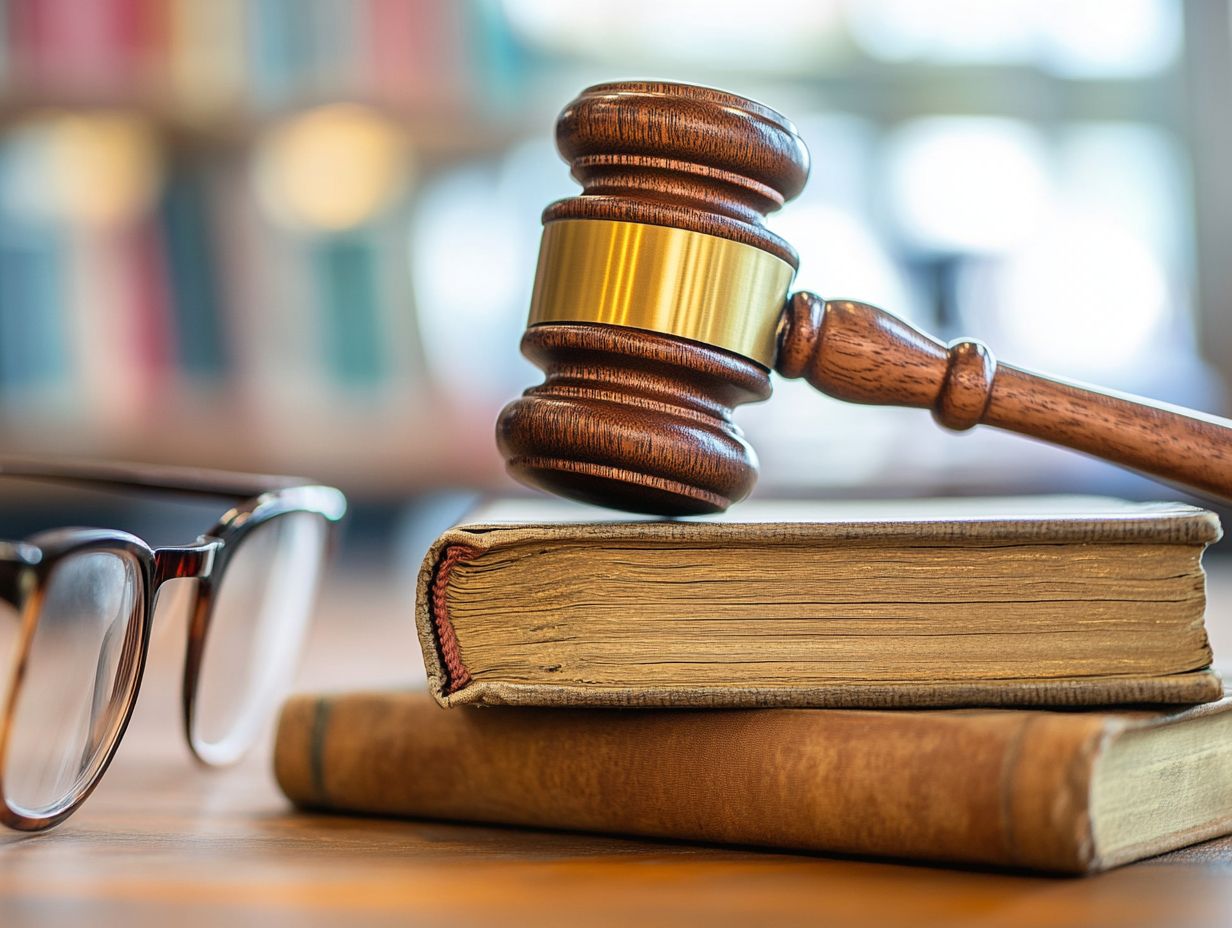
Copyright infringement is the unauthorized use of someone else’s creative work without permission. There are two main types of copyright infringement: direct (intentional) and indirect (unintentional). Copyright infringement can lead to serious legal penalties, fines, and damage to your reputation.
Understanding Copyright Infringement
Copyright infringement occurs when you use, reproduce, or distribute a copyrighted work without the explicit permission of the copyright owner, violating the legal protections established under copyright law.
This includes original works of authorship, such as artistic creations, sound recordings, and motion pictures, all of which enjoy copyright protection in the United States.
Engaging in copyright infringement can result in significant legal repercussions and penalties. Therefore, it is crucial for both creators and users of digital media to understand copyright laws and respect them.
Types of Copyright Infringement
Copyright infringement essentially falls into two primary categories:
- Direct infringement, where a copyrighted work is used without obtaining the necessary permissions.
- Indirect infringement, which occurs when someone facilitates or contributes to the unauthorized use of that work by others.
Direct and Indirect Infringement
Direct infringement occurs when you violate a copyright owner s exclusive rights through unauthorized use. Indirect infringement takes place when you contribute to or facilitate someone else’s infringement.
For instance, if a musician uploads their copyrighted song to a platform without obtaining permission from the copyright holder, that s a clear case of direct infringement. If you run a website that provides links to this unauthorized content, making it easily accessible to users, you are engaging in indirect infringement.
Copyright owners have various legal options to address these violations. They can pursue statutory damages, which are financial penalties set by law, that vary based on the infringement’s severity. They can also file lawsuits for both direct and indirect infringement, seeking remedies that may include monetary compensation and injunctive relief, which means a court order that prevents further unauthorized use.
Consequences of Copyright Infringement
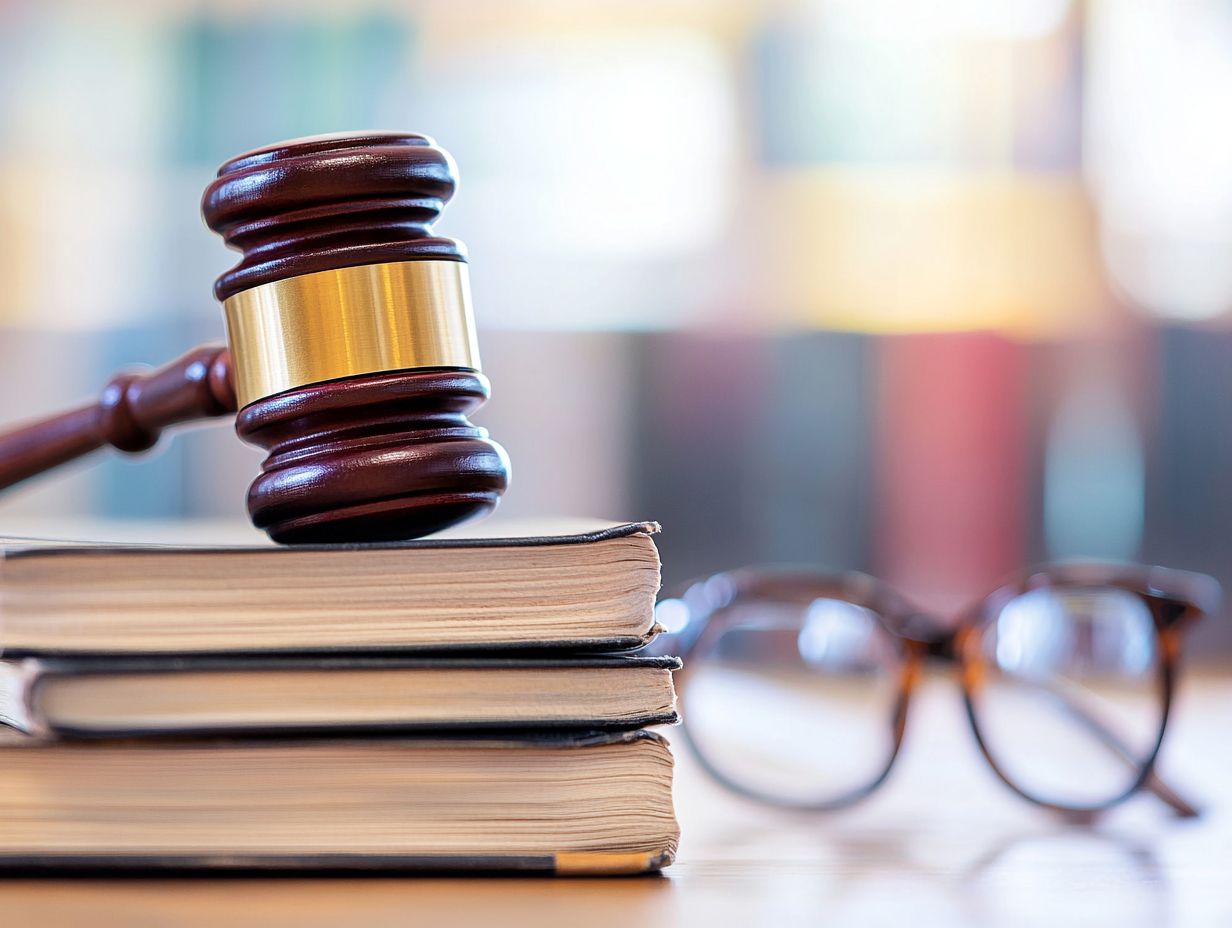
Facing copyright infringement can have serious consequences for you, including hefty legal penalties, fines, and statutory damages that could cripple your finances.
This infringement can also harm the reputations of everyone involved, creating a ripple effect that extends beyond just monetary loss.
Legal Penalties and Fines
Legal penalties for copyright infringement can be quite substantial. They may include hefty fines and set legal fines, as well as injunctions that prevent further unauthorized use of the copyrighted material.
The legal framework aims to deter potential infringers. It also protects the rights of creators like you. Depending on the severity and nature of the infringement, courts have the authority to impose various financial penalties. These may include actual damages based on lost profits or set legal fines that can vary significantly, especially if the infringement is deemed willful.
If you suspect your copyright is being violated, you have the option of taking legal action by filing a lawsuit in the appropriate jurisdiction. The outcomes of these actions can differ greatly, ranging from monetary compensation for damages to court orders mandating the cessation of infringing activities.
This underscores the importance of understanding the legal risks and potential rewards associated with copyright protection.
Impact on Reputation and Future Opportunities
Copyright infringement can significantly tarnish your reputation, putting future opportunities at risk and undermining the rights of creators that moral rights legislation often safeguards.
When allegations surface, they not only open the door to potential legal disputes but also cloud public perception. This can lead collaborators and partners to question your integrity and reliability. Such skepticism can create a ripple effect, obstructing new partnerships and collaborations essential for growth and innovation.
In an industry where trust and credibility reign supreme, the repercussions of these claims can stifle creativity. It is crucial for you to grasp and uphold your legal protections. The public backlash that often follows these accusations can linger long after the legal matters are settled, underscoring the importance of protecting your creative endeavors.
How to Avoid Copyright Infringement
Avoiding copyright infringement is essential for both creators and users of content. This includes securing appropriate copyright protection, adhering to fair use guidelines, and leveraging licensing agreements like Creative Commons. Additionally, exploring copyright exceptions can provide valuable insights into the legal landscape.
By doing so, you not only protect your work but also respect the rights of others, fostering a culture of creativity and legality in the digital landscape.
Best Practices for Using Copyrighted Material
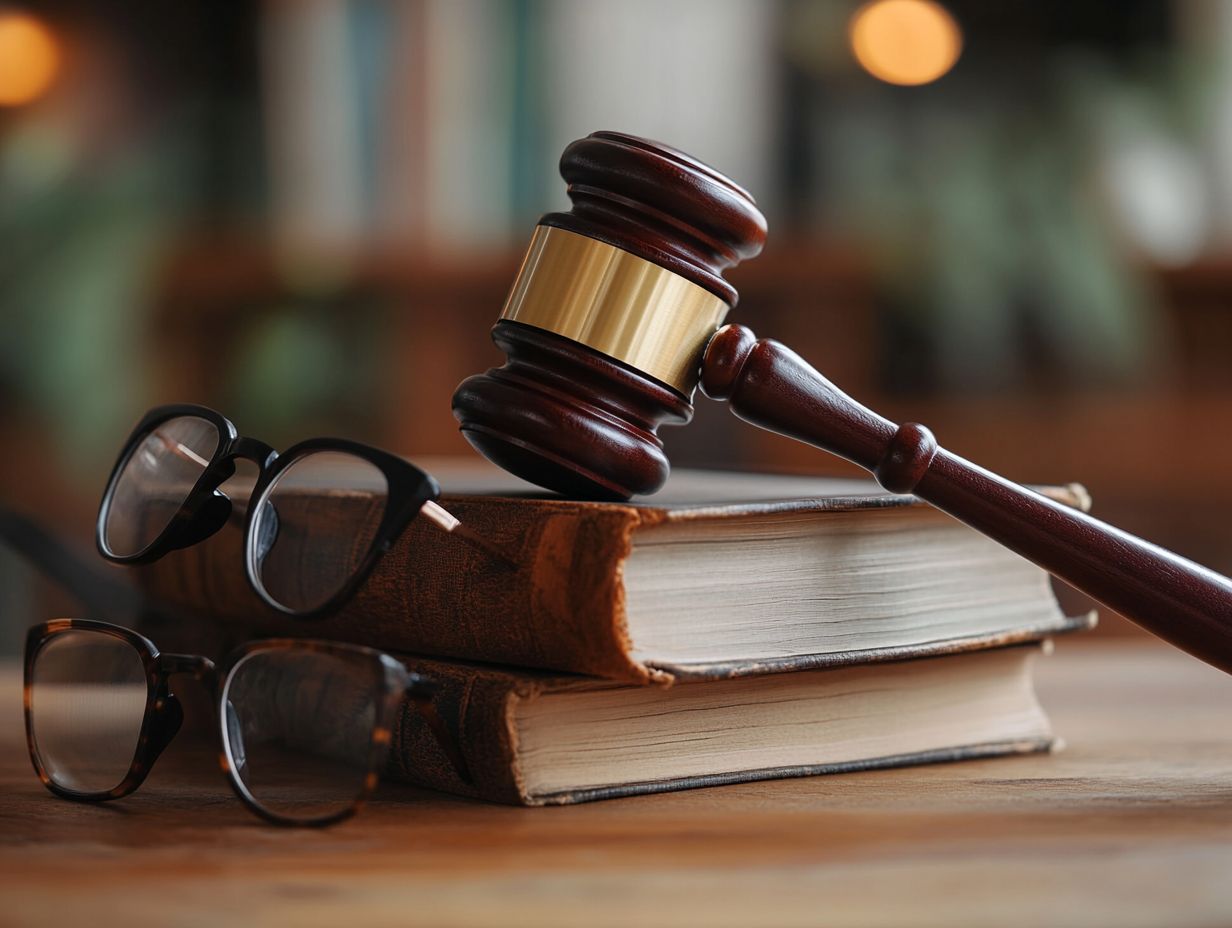
Best practices for using copyrighted material involve seeking permission through licensing agreements, grasping the nuances of fair use limitations, and accessing works in the public domain or those available under Creative Commons licenses for your educational pursuits.
Navigating these complexities is crucial for you as an educator, student, or creator who relies on diverse resources to enrich your work. By taking the time to meticulously evaluate the terms of licensing agreements, you can ensure compliance and steer clear of potential legal pitfalls.
Understanding the principles of fair use gives you the power to apply copyrighted materials in transformative ways that bolster education and scholarship. For example, you can seamlessly incorporate short excerpts of literature or visual art into your lesson plans without infringing on copyrights, as long as you stay within these guidelines.
Similarly, accessing public domain works opens up a treasure trove of creative content free from restrictions, fostering innovation and collaboration in your academic endeavors.
What to Do if You are Accused of Copyright Infringement
If you face accusations of copyright infringement, you must quickly grasp the full spectrum of your legal options.
This may involve pursuing remedies through the Copyright Claims Board or considering various strategies for mounting a defense against infringement actions.
Understanding these pathways will give you the power to navigate the situation effectively.
Stay informed and protect your creativity today!
Steps to Take and Legal Options
When faced with copyright infringement allegations, your first steps should include gathering proof of ownership, reviewing any relevant licensing agreements, and determining the best legal options to defend against the claims.
This process requires you to carefully document everything important, including original works, communications with publishers, and any licenses received.
Understanding the claims against you can help uncover misunderstandings and reveal strong defenses.
Get a lawyer. They can help you understand copyright law, evaluate your evidence, and provide strategic advice.
Exploring potential legal avenues such as settlement negotiations or filing a counterclaim can lead to a resolution that protects your rights and interests. Take action now to protect your creative work!
Watch this video to learn about copyright infringement.
Frequently Asked Questions
What is copyright infringement?
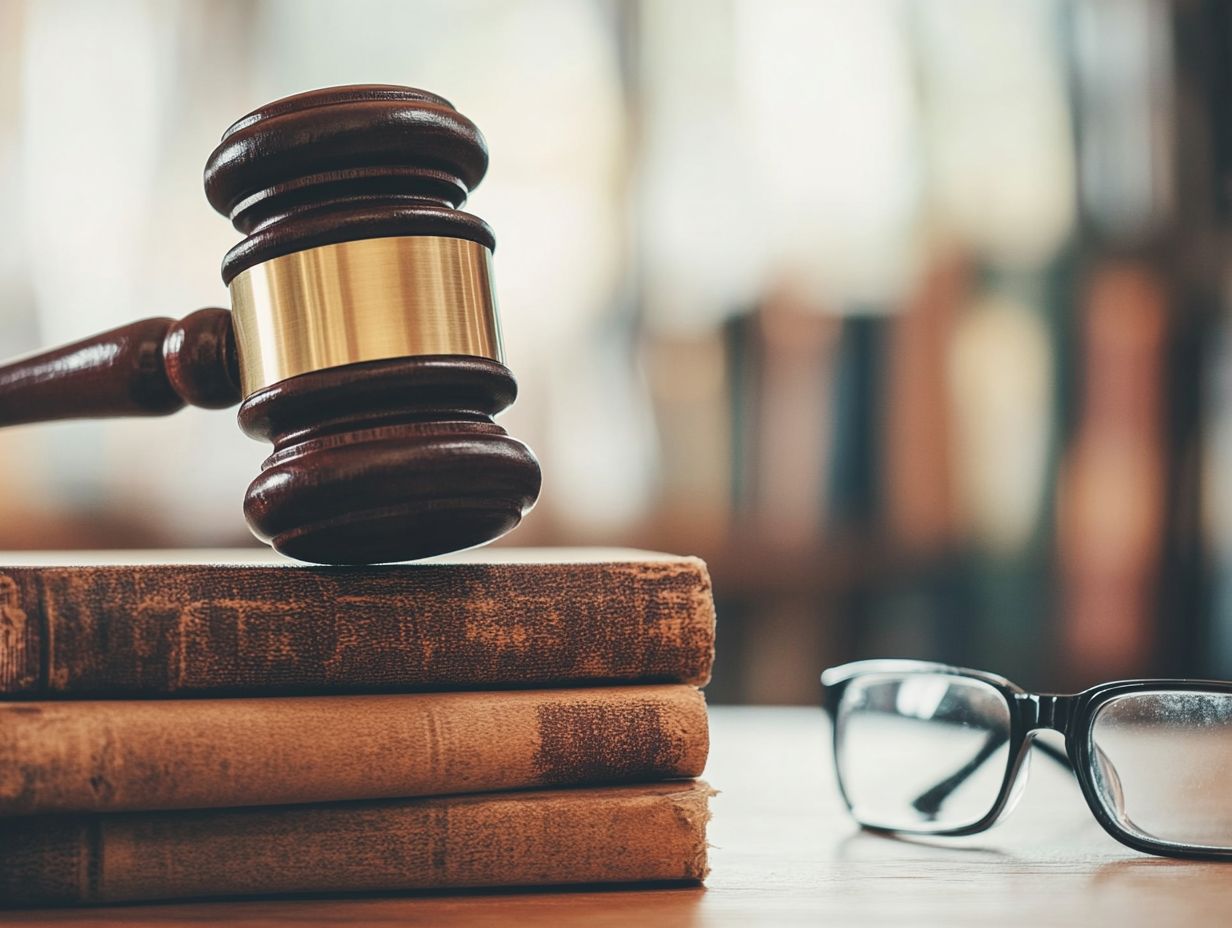
Copyright infringement is the unauthorized use of someone else’s creative work, such as music, writing, or images, without the owner’s permission or proper license.
What are some examples of copyright infringement?
Examples include using someone else’s song in a video without their permission, copying and pasting someone’s written work without giving credit, or using images from the internet without purchasing the proper license.
How can I avoid copyright infringement?
The best way to avoid copyright infringement is to obtain the necessary licenses or permission before using someone else’s creative work. This includes properly attributing the owner and acquiring the appropriate licenses for music, images, and written content.
What are the consequences of copyright infringement?
The consequences can vary but may include legal action, fines, and damages awarded to the owner of the creative work. It can also result in the removal of your content and a tarnished reputation.
Can I use copyrighted material if I give credit to the owner?
Simply giving credit is not enough to avoid infringement. You must obtain the proper licenses or permission to use the material, even if you give credit.
What should I do if I receive a copyright infringement notice?
Take it seriously! Responding correctly is crucial. Seek legal advice and respond to the notice appropriately. This may include removing the material in question or obtaining the necessary licenses or permission.

